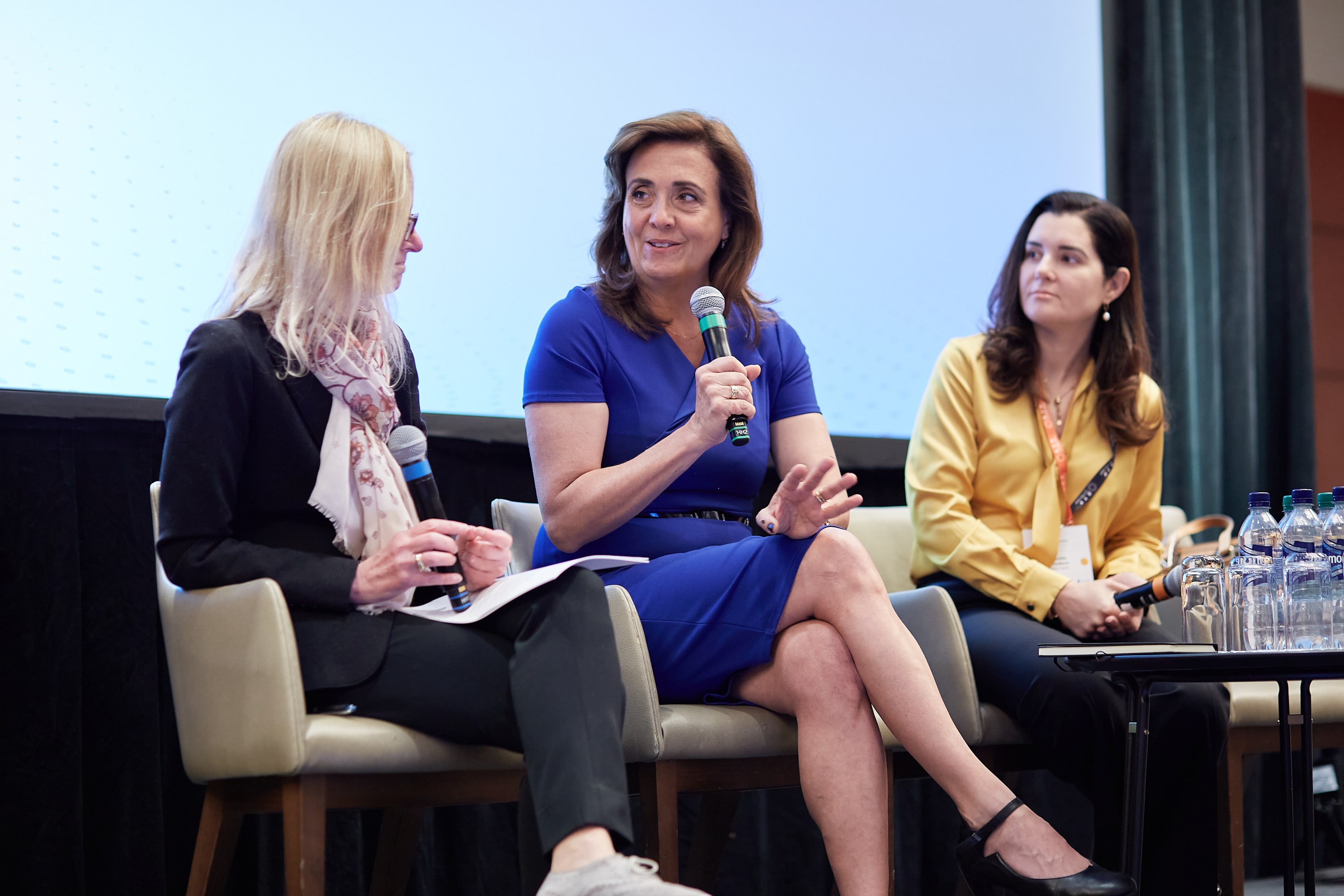1. The 'passive attack'
The peak passive debate, one of the biggest in the industry currently, was tackled by several speakers at the conference. In a keynote, Arnaud Llinas, head of ETF, indexing and smart beta business line at Amundi, said passive was “absolutely not” too big but suggested too many assets are with “too few houses”.
In a separate keynote, Robin Wigglesworth, FT Alphaville editor and author of Trillions: How a Band of Wall Street Renegades Invented the Index Fund and Changed Finance Forever, agreed, adding: “Democratising subpar, expensive investment strategies in the guise of ETFs I think is dangerous, and something I am worried about.”
2. European Commission lowers expectations on consolidated tape
In a keynote speech by Tilman Lueder, head of securities markets at the European Commission, attendees were told they will have to be patient for the introduction of a consolidated tape. Lueder said it would be “prudent” to implement a tape for equities and bonds only in “phase one”.
Responding, Keshava Shastry, global head of capital markets at DWS, said there is no need for a separate ETF tape, and that it would be possible to integrate a consolidated tape for ETFs as part of establishing a tape for equities.
3. Shiller's 'contagious' inflation warning
Legendary industry figure Professor Robert Shiller was a huge draw for professional investors attending on Day 1. He likened the current inflationary environment to the 1970s and talked of the possibility of a ‘Volker moment’ – a dramatic rise in interest rates – used by the Federal Reserve in 1979.
While not believing the global economy had reached that point, he warned the age of silent inflation was over and noted that real inflation is “contagious”.
4. Brexit stifling ETF innovation
Shane Coveney, partner at Dillon Eustace, shed some light on the difficulties facing issuers looking to launch in the UK in a post-Brexit environment. He said no new issuers have listed on the London Stock Exchange since Northern Trust Asset Management in 2020 highlighting a four to six-month wait to launch a product under current regulations.
Coveney added the costs were huge – £250,000 to be regulated under section 272 of the Financial Services and Markets Act 2000 – and noted issuers are going to white-label providers because of this.
5. A growing wedge between the UK and EU
From stifling innovation to increasing divergence, Robert Mellor, partner and UK alternatives market leader at PwC, said London is growing increasingly further away from Europe on key financial issues.
“Equivalence is a ship that has sailed,” he said. “You are going to get divergence as the UK focuses on being a global financial centre rather than complete alignment with EU. Meanwhile, the EU is also changing stance on what equivalence means.”
6. Tackling diversity issues
The breakfast workshop on Day 2 discussed some home truths about the industry, with Diana van Maasdijk, co-founder & CEO of Equileap, stating “we are still not seeing women in top positions”. Education and more female role models are needed to improve this, the workshop noted.
Gabriela Herculano, CEO and co-founder iClima Earth, said more women should be more vocal about their career aspirations: “Women tend to be shyer in terms of asking for a promotion.”
7. Tech innovation and the future of ETF trading
Despite the well-documented fragmentation of the European ETF market, the advances in technology continue to drive innovation forward in the space.
Speaking on a separate panel, Shastry said this technology helped the ETF ecosystem survive during COVID-19, particularly on the fixed income side.
“ETFs were used to help the underlying fixed income market during the COVID-19 crisis. ETFs were used in a more sophisticated way than buy and hold. We were able to ramp up the trades during COVID-19 thanks to advanced technology."
8. Long way to go for retail ETF adoption
The rise of Germany as an ETF powerhouse was a heavily discussed topic at the conference but industry figures noted just how much progress was needed across the rest of Europe. James McManus, CIO of Nutmeg, said ETFs are not easy to understand, especially for an everyday retail investor.
However, Simon Miller, co-founder and head of international at Scalable Capital, said Italy was the most likely market to follow Germany’s lead.
9. CSDR continues to be a 'point of pain'
Given the reports of a rocky start to the Central Securities Depository Regimes (CSDR), attendees were keen to hear from those at the coalface.
Allan Stewart, VP for ETF sales and relationship management at Clearstream, said the regulation – which went live in February – is still a “point of pain” for the industry but was optimistic it will be for the “greater good”.
“When things are ironed out things will operate smoother and more cheaply,” he said. “Penalty fees are not in our interest.”
10. Crypto ETPs put through their paces
Taking place in the aftermath of the Terra crash, Tom Wan, research analyst at 21Shares, gave his insight on what caused the crash, noting it was a “crypto-specific event” while the wider pain felt by bitcoin was due to its high correlation with the stock market.
Even Professor Shiller weighed in on crypto, casting doubt over its long-term future, but wishing he had invested in it when he first heard of it. Bernie Thurston, CEO of Ultumus, added that there should be a slowdown in crypto ETP launches.
This article first appeared in ETF Insider, ETF Stream's monthly ETF magazine for professional investors in Europe. To access the full issue, click here
Related stories


